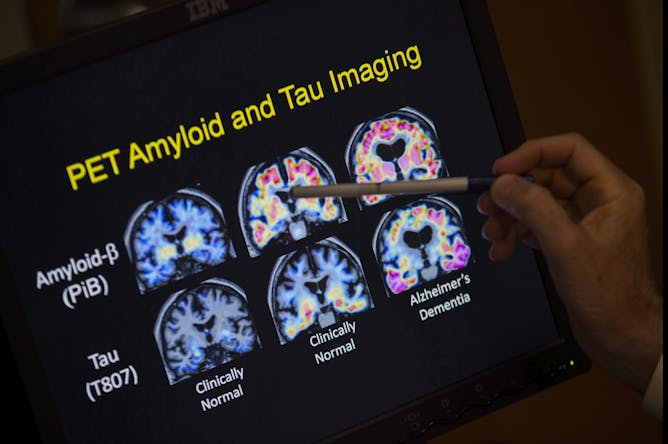|
The recent anti-migrant stunts by the Florida and Texas governors have been shocking in their cruelty. But the Republican politicians, ostensibly trying to prove a point to states that don’t have an influx of migrants at their borders, were borrowing from history when they perpetrated their stunts and sent desperate migrants to liberal areas of the country with false promises of jobs and accommodations.
Today in The Conversation Canada, Jason Opal of McGill University says the stunts reflect specific hatreds that date back to the very beginnings of European settlement in North America. From the 1700s to the Civil Rights movement of the 1960s, unwelcoming officials have tried to humiliate more progressive and compassionate regions of the country by tricking marginalized people and sending them away with fraudulent promises of better lives.
He writes: “Look for their choreographed deportations to continue, ginning up Americans’ increasing contempt for each other while wearing down the republic’s fragile ideal of finding a ‘more perfect union.’”
Also today:
|

|
Lee-Anne Goodman
Politics, Business + Economics Editor
|
|

An image of Florida Gov. Ron DeSantis is overlaid with the words ‘don’t attack our democracy’ at a rally to denounce the governor’s immigration policies on Sept. 20, 2022, in Doral, Fla.
(AP Photo/Rebecca Blackwell)
Jason Opal, McGill University
The recent anti-migrant actions of the Florida and Texas governors reflect specific hatreds that date back to the very beginnings of European settlement in North America.
|

A study finds that stereotypes, systemic hurdles, and discriminatory policies and procedures persist more in European society than in Québec.
Shutterstock
Louise Champoux-Paillé, Concordia University; Anne-Marie Croteau, Concordia University
A survey on stereotypes and discrimination in the business world reveals major disparities between men and women.
|

A deadly train derailment that killed three workers is shown near Field, B.C., in February 2019. Railways have their own police forces that place them in a conflict of interest when they investigate their employers.
THE CANADIAN PRESS/Jeff McIntosh
Bruce Campbell, York University, Canada
The federal government must implement a railway policing law that helps restore public confidence in law enforcement and provides justice to the families of those who die on the job.
|

A man holds a QAnon sign outside the White House. Even if most people don’t act on their conspiratorial beliefs, such theories can still pose very real dangers.
(Shutterstock)
Lara Millman, Dalhousie University
Many of those who believe conspiracy theories do not necessarily act on those beliefs. Nevertheless, conspiracy theories can still spread dangerous misinformation that can cause harm.
|

Software and technology can process large amounts of data instantaneously, making them highly attractive for government use.
(Shutterstock)
Joanna Redden, Western University
In the pursuit of efficiency, governments turn to technological solutions, like automated decision-making systems. But these systems are often problematic.
|
La Conversation Canada
|

Une nouvelle théorie sur la maladie d’Alzheimer reconsidère le rôle de la bêta-amyloïde dans le cerveau.
(AP Photo/Evan Vucci)
Donald Weaver, University of Toronto
La maladie d’Alzheimer n’est peut-être pas principalement une maladie du cerveau. Il pourrait s’agir d’un trouble du système immunitaire à l’intérieur du cerveau.
|
Ukraine Invasion
|
-
Stefan Wolff, University of Birmingham; Tatyana Malyarenko, National University Odesa Law Academy
Vladimir Putin’s televised address to the Russian people is a desperate attempt to raise the stakes over the war in Ukraine.
-
Robert M. Dover, University of Hull
The west needs to understand the messages coming from Russia, not ignore them.
|
|
COVID-19
|
-
William Hauk, University of South Carolina; Lisa Miller, University of Colorado Anschutz Medical Campus; Wayne Au, University of Washington, Bothell
President Joe Biden’s suggestion that the COVID-19 pandemic is over has led to a backlash among some experts who suggest the comment is premature – and counterproductive.
|
|
Environment + Energy
|
-
Shuang-Ye Wu, University of Dayton
Millions of people around the world suffered through long-lasting heat waves and deadly flash flooding in the summer of 2022. An environmental scientist explains the rising risks.
|
|
Science + Tech
|
-
Stefania Soldini, University of Liverpool
We don’t know much about the target asteroid of Nasa’s imminent Dart mission, so it’s hard to predict what will happen when we crash into it.
|
|
|
|
| |
| |
| |
| |
|
|